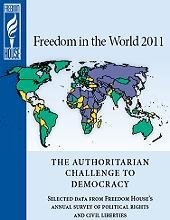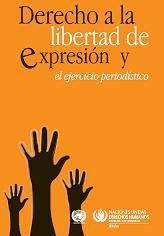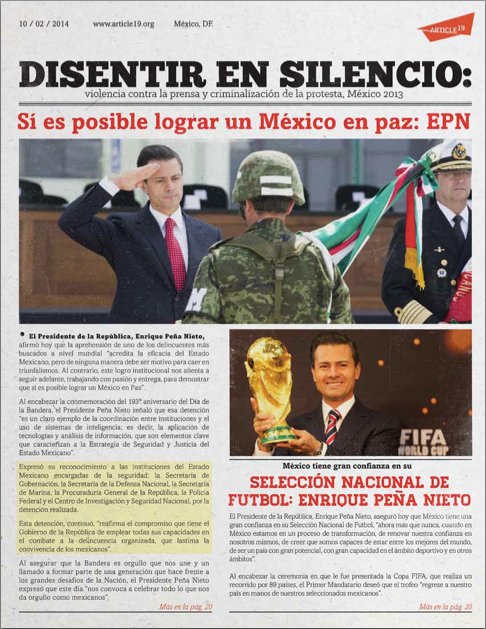Por la Procuraduría General de la República
El presente trabajo forma parte de un programa de capacitación implementado por el Sistema de Alerta Temprana de la Fiscalía Especial para la Atención de Delitos cometidos contra la Libertad de Expresión (FEADLE), el cual obedece, principalmente, al compromiso que tiene la Procuraduría General de la República, a través de la Subprocuraduría de Derechos Humanos, Prevención del Delito y Servicios a la Comunidad, de salvaguardar el derecho a la libertad de expresión, bajo el principio de que es mejorprevenir un ilícito que investigar un hecho consumado.
Reporters Without Borders, septiembre, 2009. Investigación: Benoît Hervieu, Balbina Flores Martínez y Jean-François Julliard
Nota de prensa del reporte:
Media ordeal blamed on escalating security offensive and cumbersome bureaucracy
Reporters Without Borders is today releasing the report of its latest visit to Mexico, which took place from 4 to 12 July. The release coincides with a Reporters Without Borders news conference in Washington at which the speakers will included Emilio Gutiérrez Soto, a Mexican journalist who fled to the United States and is now waiting to be granted refugee status (see video : http://www.youtube.com/watch?v=VYyR... ).
With a total of 55 deaths of journalists since 2000 that were clearly or probably linked to their work, and eight journalists missing, Mexico is the western hemisphere country where press freedom is most endangered. The creation of a Special Federal Attorney’s Office for Combating Violence against the Media in February 2006 has unfortunately changed nothing and has not helped to combat impunity.
The purpose of this Reporters Without Borders visit was to examine the investigations into several recent murders and disappearances of journalists with the aim of gaining insight into the workings of the Mexican criminal justice system and what causes it to malfunction.
Led by secretary-general Jean-François Julliard, the Reporters Without Borders delegation met with journalists, press freedom activists and government officials, including secretary of interior Fernando Francisco Gómez-Mont Urueta, the number two in the federal government.
The report’s findings are unfortunately damning for the authorities, both local and federal. The passivity or negligence of the excessive number of entities dedicated to defending press freedom in all branches of the government (executive, legislative and judicial), and their tendency to cancel each other out, are not the only reasons why the Mexican media’s ordeal continues.
The authorities are also accomplices, if not responsible, for serious human rights violations including the right to report the news.
The scale of this tragedy is the result not only of organised crime’s infiltration of certain sectors of the state apparatus but also the escalating security measures and the military offensive on the drug cartels launched in December 2006. The number of deaths resulting from this undeclared war now stands at 14,000.
The federal offensive is being waged with particular determination in the southwestern states of Michoacán and Guerrero, which are as much in the grip of drug trafficking and violence as the regions along the US border. After visiting the capital, the Reporters Without Borders delegation spent most of its time in these two states.
In the report’s conclusions, Reporters Without Borders calls for a complete overhaul of the Mexican judicial system and major legislative changes concerning the press. The press freedom organisation is nonetheless convinced that a solution to the tragedy is impossible unless the United States imposes controls on firearms.
The Authoritarian Challenge to Democracy
The increasing truculence of the world’s most powerful authoritarian regimes has coincided with a growing inability or unwillingness on the part of the world’s democracies to meet the authoritarian challenge, with important consequences for the state of global freedom. According to Freedom in the World 2011, the latest edition of Freedom House’s annual survey of global political rights and civil liberties, conditions worsened for the fifth consecutive year in 2010.
Oficina del Alto Comisionado de las Naciones Unidas para los Derechos Humanos, 2010
La Oficina en México del Alto Comisionado de las Naciones Unidas para los Derechos Humanos (ONU-DH) consultó, motivó e invitó a un selecto grupo de periodistas y especialistas en el derecho a la libertad de expresión con el fi n de aprovechar su experiencia y conocer sus refl exiones sobre los retos actuales del ejercicio periodístico en México. Las temáticas que aquí se abordan van desde la cobertura en zonas de riesgo, las nuevas tecnologías, el periodismo y la libertad de expresión, la regulación y autorregulación, hasta la viabilidad de los mecanismos de protección y el mundo de la publicidad, y ofrecen, sin excepción, una perspectiva propositiva desde y para las y los periodistas.
Por Article 19
Desde 2004 el ejercicio de la libertad de prensa en nuestro país ha estado en franco declive. El incremento sostenido de la violencia contra la prensa y defensores de derechos humanos da cuenta de un contexto adverso para la crítica, investigación y el disenso.
En el 2003, al inicio de la documentación de los casos de violación a la libertad de expresión, ARTICLE 19 afirmó contundentemente que el principal perpetrador contra la prensa son autoridades, a pesar de que el mensaje oficial siempre ha querido desviar la atención y decir, sin pruebas, que el crimen organizado es el agresor principal. Que sean policías municipales y estatales los que acumulan mayor número de actos violentos contra la prensa denota un débil estado de derecho, donde las autoridades encargadas de asegurar un contexto de seguridad para el ejercicio de un derecho fundamental se convierte en su principal enemigo.
Documento completo, pulse aquí




